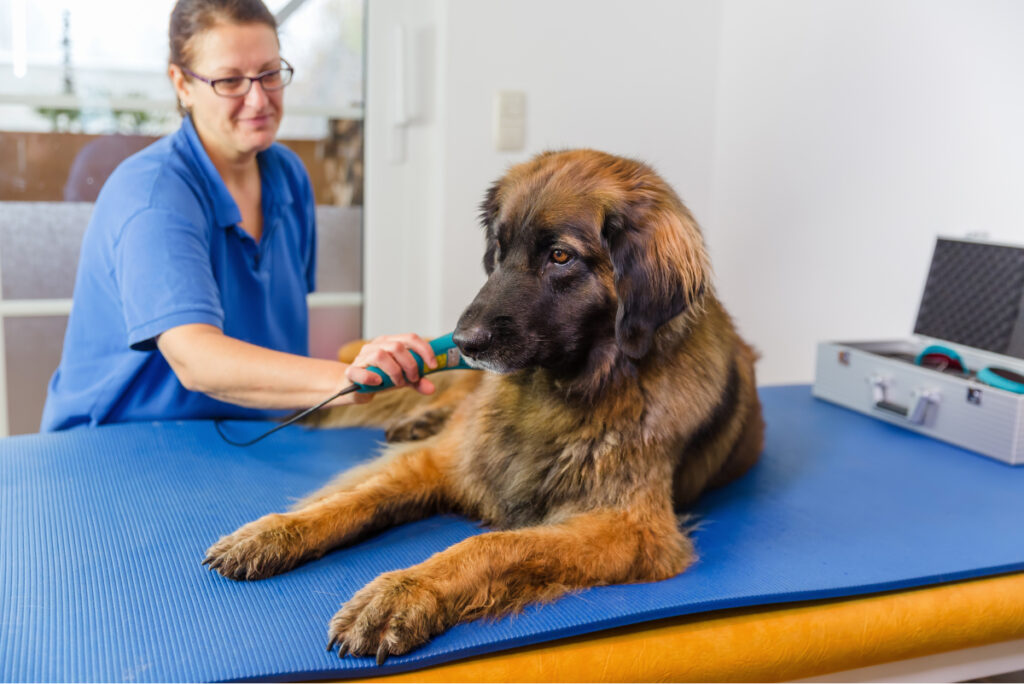Senior Pet Care & Planning
Compassionate Senior Pet Care in Fort Washington & Flourtown, PA
When dogs reach approximately 8 years of age and cats reach 10, we like to introduce owners to the idea of planning for their pets’ senior life stage. Is your pet still feeling fabulous? Great! We want to help you keep him/her feeling frisky for years to come.
Your vet will likely start recommending twice yearly visits for dogs, since many canines begin aging faster at this point. In addition to a senior dog wellness exam, thorough Senior Bloodwork may be recommended, check out our Wellness Testing brochure here for test components. These tests provide your vet with important information about the current state of your pet’s health and will factor in determining an appropriate plan for moving forward.
The discussion with your vet may involve environmental considerations, food, exercise, assistive devices, supplements or prescription medications. Our hospital offers advanced services such as acupuncture & herbal supplements, cold laser therapy, Cryosurgery and dentistry – all useful tools for senior pets when appropriate.
Read on to learn more about our Senior Pet Care Program, or call (215) 515-8810 for small animals services or (215) 515-6909 for large animal services.
We also understand that some owners may be facing end-of-life concerns about their pet. Please reach out to your vet online or by calling (215) 646-5225 to discuss this sensitive subject. We are here for you and your pet!
What Is Included in Our Senior Pet Care Program?
At Quakertown Veterinary Clinic, our Senior Pet Care Program includes:
- Physical exam (not including vaccines, heartworm test, or fecal exam)
- Complete blood count
- Blood chemistry profile
- Thyroid level
- Complete urinalysis
- Urine protein/creatinine ratio test
- Nutritional consultation
How to Tell If Your Pet Is a “Senior”
Cats generally reach senior stage around eight years of age. Many cats begin to experience some sort of age-related changes between 8 and 10 years of age. Just like dogs, cats age much quicker than humans. At one year of age, a cat is about 16 in “human years,” but that aging slows down as they get older. Many cats live well into their mid- to late teens, especially with the advances in veterinary medicine.
As cats age, they may become stiff, much like humans, and even gray around their faces. Many cats don’t groom themselves as well as they used to and their fur may become matted and dull looking. Their eyes may look hazy or cloudy. Older cats may not spend as much time around the family as usual and may sleep the majority of the day. Cat’s behavior can change as well, with them becoming crankier in their senior years.
A senior dog is usually over seven years of age, except for giant breeds (Great Danes, Mastiffs, Saint Bernards, etc.) who have a genetically shorter life-span and can be considered seniors at five years of age. A dog’s biological clock moves much faster than it does for people. Instead of taking 18 years to reach physical maturity as people do, dogs mature when they are slightly more than one year old.
The average lifespan for dogs varies between 8 (giant breeds) and 18 years (miniature breeds), depending on the breed and size. With regular and proper health care visits to your veterinarian, you can help your dog live to his/her optimal lifespan in good health, Aging dogs are similar to aging people; they may walk more stiffly and have trouble getting up and down stairs. You may see gray hair around their muzzle and a duller, drier coat and hazy eyes.
To schedule a routine wellness exam for your pet, or to make an appointment for pet vaccinations in Quakertown, contact us at (215) 515-8810 for small animals or (215) 515-6909 for large animals today.
Contact Us for Compassionate Senior Pet Care
Our team is dedicated to providing a personalized senior pet care program for your elderly cat or dog. We are passionate about providing compassionate care designed to help your pet live a long and happy life and enjoy his or her golden years.
Contact us to learn more about our Quakertown senior pet care services.
Here at Fort Washington Veterinary Hospital
Our reputation for quality and service has grown along with our practice.

Family Friendly
Enjoy a casual conversation with other clients in our waiting area. You are also welcome to wait for appointments outside or in your car.
Community Focus
We deliver client (& non-client) donations to local pets in need, as well as participate in fundraisers and local events.
Experience
Almost 50 years of compassionate and excellent patient care!
Longevity
Many of our staff members have been employed at our hospital for over 12 years! We work extremely well as a team.
Real Stories from Real Owners
Fort Washington
- Hours
Mon – Thurs: 8:30 AM – 8:00 PM
Friday: 8:30 AM – 5:00 PM
Saturday: 8:30 AM – 1:00 PM
Sunday: Closed
- Location
- Phone
Flourtown
- Hours
Mon & Wed: 8:30 AM – 8:00 PM
Tue, Thurs, Fri : 8:30 AM – 5:00 PM
Sat & Sun: Closed
- Location
- Phone
